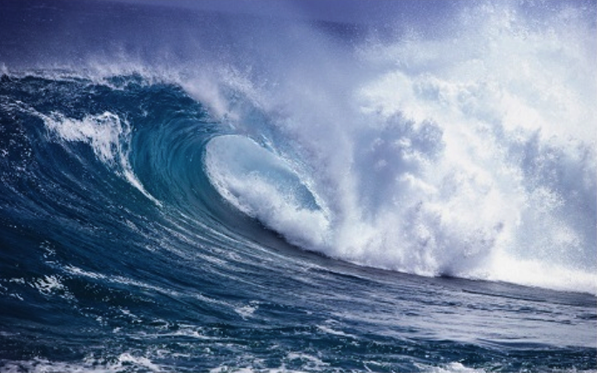
Photo courtesy Francesco Fedele.
Associate professor Francesco Fedele and his international collaborators from the University of New South Wales, Australia, University College Dublin, Ireland and Institute of Marine Sciences, ISMAR Italy have published a two-year research effort in the prestigious journal Physics Review Letters, with impact factor 7.93.
The team reported a wave-crest slowdown mechanism generic to "unsteady" propagating deep water wave groups - findings that have significant, broader consequences. For ocean waves, they explain the puzzling reduced initial speed of breaking-waves, central to assimilating whitecap data accurately into sea-state forecast models. This finding has been validated in extensive laboratory and field observations.
Francesco Fedele contributed to identify that the crest slowdown also occurs in linear wave group systems. He revealed that wave group bandwidth and unsteadiness were crucial aspects of the crest slowdown, using linear and nonlinear wave theory. Moreover, the advanced stereo video imaging system WASS has been exploited by Fedele and his collaboraror Alvise Benetazzo from ISMAR, Italy, to validate the abovementioned study using ocean field observations acquired at the oceanographic tower Acqua Alta off the Venice Lagoon.
Fedele believes that this behaviour appears to be generic to unsteady dispersive wave groups in other natural systems. Atmospheric and oceanic internal waves as well optical and seismic waves should also experience similar physical effects. Fedele also thinks that it may be a key element in understanding the occurrence of the so called "rogue waves", unusually large waves that seemingly appear at random in the middle of the ocean.
Learn more about this research on Physical Review Letters.
